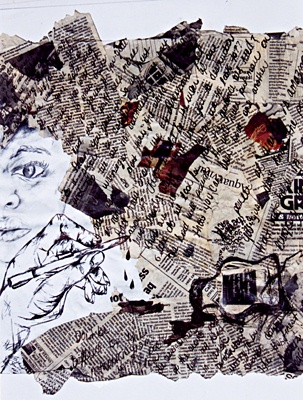All Nonfiction
- Bullying
- Books
- Academic
- Author Interviews
- Celebrity interviews
- College Articles
- College Essays
- Educator of the Year
- Heroes
- Interviews
- Memoir
- Personal Experience
- Sports
- Travel & Culture
All Opinions
- Bullying
- Current Events / Politics
- Discrimination
- Drugs / Alcohol / Smoking
- Entertainment / Celebrities
- Environment
- Love / Relationships
- Movies / Music / TV
- Pop Culture / Trends
- School / College
- Social Issues / Civics
- Spirituality / Religion
- Sports / Hobbies
All Hot Topics
- Bullying
- Community Service
- Environment
- Health
- Letters to the Editor
- Pride & Prejudice
- What Matters
- Back
Summer Guide
- Program Links
- Program Reviews
- Back
College Guide
- College Links
- College Reviews
- College Essays
- College Articles
- Back
The Reality
There are many bad things in this world that people will mold, shape, and mutilate to become good. Many authors will romanticize abusive relationships and create storylines where mental disorders are unimportant choices that only show up to create a touching scene. Not only is this a problem by showing clearly bad things to be good, it can give young viewers and readers a skewed look on reality.
In the popular Twilight book series, Bella Swan, the main character, is seen in an abusive relationship, but it’s not called out like it should be. Instead, it’s seen as romantic when Edward stalks her, isolates her from her family and friends, and shows off violent, predatory behavior. These are common signals in abusive relationships, but instead of breaking up with him, Bella ends up getting married to Edward. Many people who read this book series are in their teens, and most haven’t been in a proper relationship yet. When the author shows off this abusive behavior as romantic, it sets an unrealistic standard in the minds of young people that yes, relationships should be like this-but they shouldn’t be.
In the Disney animated film Beauty and the Beast, many have pointed out that Belle appears to have Stockholm Syndrome-a mental illness where a prisoner, “falls in love” with their captor, a trick of the mind to tell the prisoner that what’s happening right now is fine. From surface level, yes-Belle does experience Stockholm Syndrome. It can be seen that Belle does keep her independence-refusing to eat dinner with the Beast, attempting escape-but the creepy message is there all the same. Beast is seen as violent, rude, and seriously needs to take some anger management classes. It shows young girls to stay in abusive relationships, in hopes of changing their partners, “for the better”. In reality, people won’t be able to change from bad to good with a little love connection, and this movie shouldn’t be romanticizing abusive relationships.
You don’t have to have a mental illness to understand how they work-I have good friends that suffer from many mental illnesses such as depression and anxiety. A common mistake that many people make is when they say that they have depression, or they have anxiety, when in reality they’re just feeling down or nervous. You can feel anxious, and you can feel depressed, but that doesn’t mean you have these illnesses. If you educate yourself about mental illnesses, you can help people with mental illnesses, stop those faking it for attention, and educate those who don’t know much about them.
When we as writers show the general public that bad things are good, we create a world in the minds of others that maybe this isn’t so bad after all. But the reality is that these things should not be set aside, romanticized or be hidden as good things. They deserve to be taught and deserve to be shown as what they are. If we continue to teach our society, “I’m a bad boy but I’m secretly good inside” we harm ourselves and the people we love. If we continue to do this, maybe we are all Belle.

Similar Articles
JOIN THE DISCUSSION
This article has 0 comments.

The, "I'm the bad boy, but I'm secretly a good person on the inside" trope is harmful and damaging to people's view on romance. "Bad boys" are abusive, rude, manipulative, and only want you for your body-they are not secretly kind, and definetly don't care about you. These are bad boys. Not, "Oh I smoke and wear leather jackets, I'm super sarcastic and pretend to be bad to hide that I have family issues. I'm a nice guy inside, but I can't let anyone see that I'm weak."
We as writers are teaching our audiences to go after these, "bad boys", but we should be telling eachother to avoid these people. Nearly 60% of women are in abusive relationships, and 48% of men are seen to be in abusive relationships. I believe that we can lower this number, lower this hurt if we show and educate the population about this problem.
As for mental illnesses, 1 in 5 adults experience mental illnesses in the U.S-when we show people, especially young teens, that their mental disorder can be fixed with a little love instead of therapy, or that they are unimportant, we spread the idea and tell these people that they are, in turn, unimportant. Everyone deserves the happiness they deserve, and there are wonderful people out there that don't even know who they are without their depression, anxiety, etc. We should show how important that they are, and not turn their mental illness into a writing trope for a touching scene.